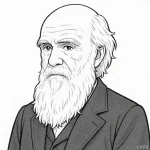“If we cut up beasts simply because they cannot prevent us and because we are backing our own side in the struggle for existence, it is only logical to cut up imbeciles, criminals, enemies, or capitalists for the same reasons.”

- November 29, 1898 – November 22, 1963
- Born in Ireland
- Writer, scholar
table of contents
Quote
“If we cut up beasts simply because they cannot prevent us and because we are backing our own side in the struggle for existence, it is only logical to cut up imbeciles, criminals, enemies, or capitalists for the same reasons.”
Explanation
In this stark and provocative quote, C. S. Lewis warns against the moral dangers of using might or power to justify the exploitation or harm of others. He draws a chilling parallel between killing animals for the sake of survival or pleasure and the potential justification for harming humans—be they perceived as weak, criminals, or oppositional—simply because they are vulnerable and cannot defend themselves. Lewis is pointing out that if we accept the logic of exploiting or harming others based on strength or self-interest, we could easily extend this rationale to any group of people deemed inferior or undesirable. This reasoning, he implies, can quickly devolve into inhumane actions and justifications for violence, leading to the erosion of moral values.
Historically, this quote reflects Lewis’s concerns about the dangers of moral relativism and the evolutionary thinking that was gaining prominence in his time. He was deeply concerned with the idea that human beings might base their morality on survival of the fittest or other forms of pragmatic self-interest, rather than on inherent moral principles. Lewis’s Christian worldview emphasized that human dignity and morality are not based on power or utility but on the belief that every person has inherent value as a creation of God. His criticism in this quote is a response to those who would justify violence or oppression using secular or Darwinian principles, which can easily be twisted to justify atrocities.
In the modern context, this quote remains profoundly relevant, especially in discussions about eugenics, capital punishment, or the dehumanization of certain groups in society. Lewis’s point encourages us to question any justification for harm that comes from self-interest or the idea of natural hierarchy. Whether in debates about human rights, social justice, or military intervention, this quote calls for a recognition of universal human dignity—the idea that no one should be harmed based on their vulnerability, status, or position in society. By drawing a connection between how we treat animals and how we might justify harming other humans, Lewis underscores the importance of moral consistency and compassion in all our actions.
Would you like to share your impressions or related stories about this quote in the comments section?



